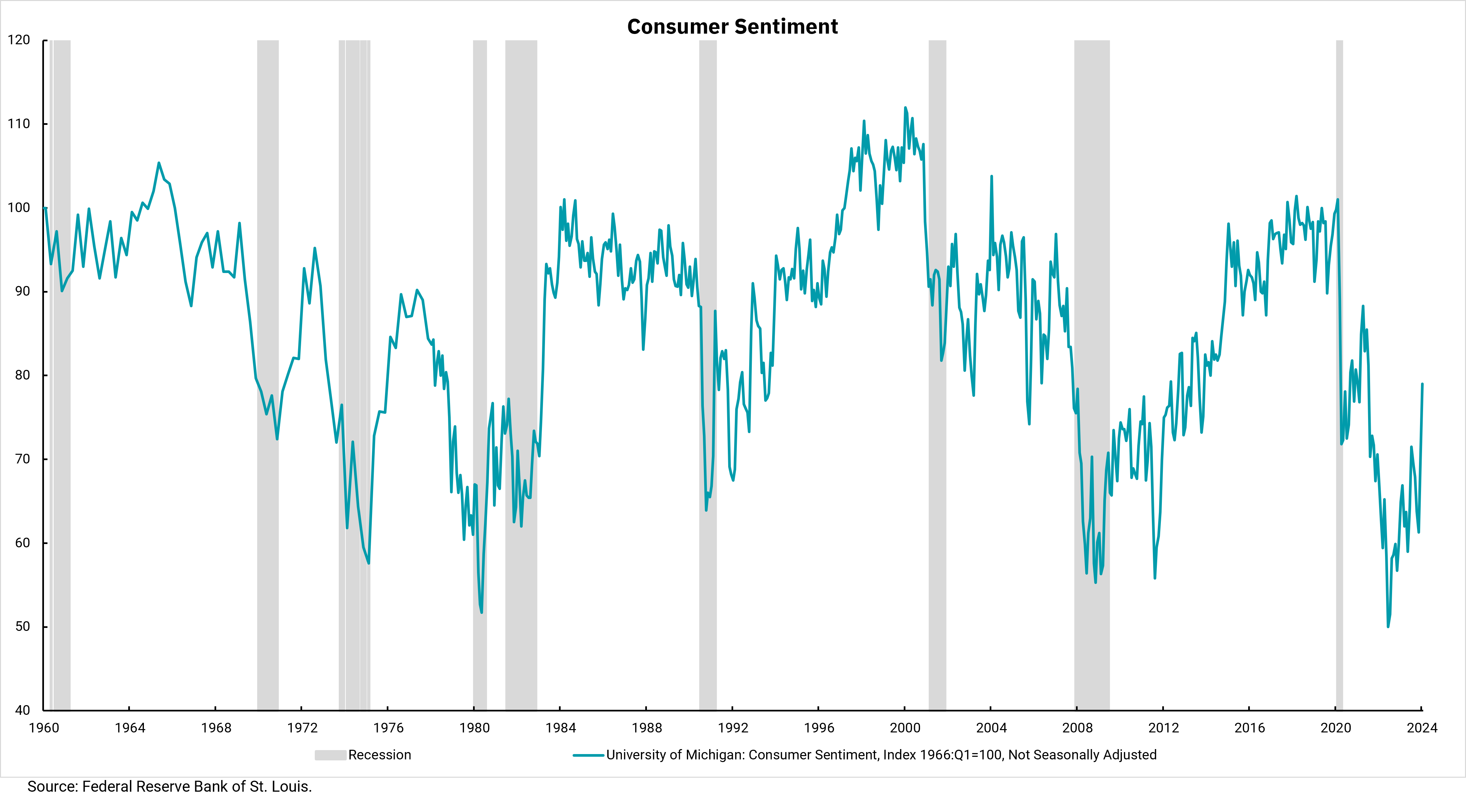
Consumers optimistic about the economy—to a degree
Consumer sentiment index has rebounded but is still below average
In addition to economic data reported by the government, such as the Department of Labor's monthly report on employment and various inflation measures, we also follow some reports that attempt to measure business or consumer opinions. These surveys try to capture feelings about current conditions, as well as expectations for the economy and inflation. Expectations can be an important barometer because businesses and consumers often act based on how they feel. If the outlook is positive, we tend to see businesses willing to invest in growth and maintain or add to employment. Meanwhile, consumers who feel confident about the future are more likely to spend and decide to buy homes or automobiles. The opposite is true when expectations are poor.
This week's chart is a long-term view of the University of Michigan Consumer Sentiment Index. As we can see, it goes back to 1960. It consists of a monthly survey of some 500 consumers who answer about 50 questions that cover three primary areas: their personal finances, business conditions and buying conditions. The people interviewed change over time, with each month's survey responses coming from new interviewees and about 40% from repeat interviewees. Since spending is about two-thirds of gross domestic product (GDP), considering how consumers feel and what that might mean to spending has a history of foretelling future economic activity.
Within these broad areas, we can glean information that could impact the job market, as well as retailers’ and consumers' feelings about factors like interest rates and inflation. A chart review also shows how recessions, indicated by the gray bars, tend to correlate with declines in survey readings. Interestingly, the survey is indexed to its beginning value in the 1960s. Readings have been measured as better or worse since that time. It seems they started the survey at a pretty good time in the economy, as since then, the survey has resided more at lower levels than at higher levels. More than the absolute level, however, it’s the change in the index that provides the most insight. Looking to the right of the chart, we see a significant decline before a rebound over the last few months. Thinking about the economy in 2023, many economists were expecting the onset of a recession as the Federal Reserve was aggressively raising rates, the yield curve was inverted and, yes, the University of Michigan Consumer Sentiment survey was declining. All these factors have portended a period of economic weakness in the past, so small wonder recession expectations were high.
As inflation measures have receded and the job market has remained firm, we have seen a welcome rebound in consumer sentiment measures, with the survey for January surging 13% to its highest level since July of 2021. We are still about 7% below the average since 1978, so one would be correct in saying things are not great. Still, the improvement in sentiment provides insight to a consumer who is feeling a lot better today and expecting more in the coming months.
Get By the Numbers delivered to your inbox.
Subscribe (Opens in a new tab)